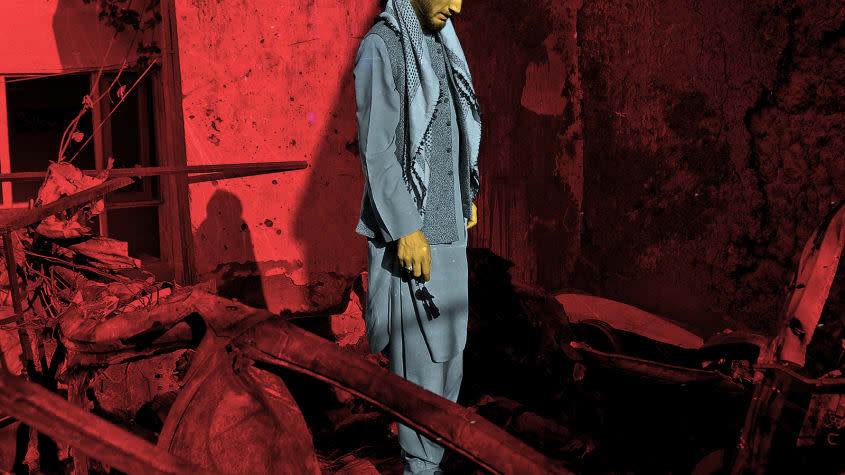Once again, the U.S. justifies the unjustifiable

The United States government believes it is perfectly reasonable — or, at least, "not unreasonable" — to kill an innocent family of civilians.
If that sounds brutal, consider this: A Pentagon review of the August drone strike that wrongly killed 10 members of an Afghanistan family during the U.S. pullout has concluded that no one in the military should be disciplined for the attack. A slaughter that Gen. Mark Milley initially called "righteous" was decidedly unrighteous, but the review determined that the process which led to the attack was fine. It's the result that turned out badly.
"I found that given the information they had and the analysis that they did — I understand they reached the wrong conclusion, but ... was it reasonable to conclude what they concluded based on what they had? It was not unreasonable," Air Force Lt. Gen. Sami Said told The Associated Press. "It just turned out to be incorrect."
There is a lot of work being done by the word "just" in that last sentence, a sort of shrugging "oops" that implicitly minimizes the catastrophic results of the mistake. (To be fair, Said also called the deaths "regrettable.") That's awful, but the larger problem is that such mistakes are routine: Researchers suggest that at least 22,000 civilians — and probably many more — have been killed in U.S. airstrikes and drone strikes since 9/11. The Afghanistan attack was simply the one that drew attention. "There have been countless similar strikes over the years, and so many intentionally uncounted deaths, that have happened in the shadows," Matt Duss, the foreign policy advisor to Sen. Bernie Sanders (I-Vt.), noted on Wednesday.
The United States wrongly killed Zemerai Ahmadi and members of his family because it was trying to protect its own forces that were retreating from the country. That's seemingly understandable, but it is also reminiscent of so many police shootings of unarmed civilians because the officers mistakenly had a "reasonable belief" that they were in danger. The results, in both cases, can be similar: At home, police have faced a crisis of legitimacy among the people they are sworn to serve and protect, while abroad researchers have found that drone strikes often end up "harming rather than enhancing U.S. security" by generating rage among the families and friends left behind by the victims.
Governments routinely justify violence that is, in the end, wholly unjustifiable. It was ever thus, perhaps. But there should be nothing routine about the slaughter of innocents. If "the process" so often turns out terrible results without anybody having to take responsibility, then it's time to change the process. Right now, America's use of drone strikes doesn't seem very reasonable.
You may also like
5 riotously funny cartoons about Steve Bannon's contempt of Congress charge
Infrastructure bill could be done 'well before' Build Back Better, confirms Rep. Jayapal

